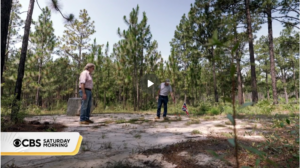As much as I read, I have many, many, many favorite books. Narrowing them down to my five most favorite is extremely difficult, if not impossible. However, if I make this list “five of my favorite books” instead of “my five most favorite books,” that helps take off some of the pressure to cull it down. So, here we go; the following are five of my favorite books—in no particular order:
 The War for the Common Soldier: How Men Thought, Fought, and Survived in Civil War Armies by Peter S. Carmichael
The War for the Common Soldier: How Men Thought, Fought, and Survived in Civil War Armies by Peter S. Carmichael
From the earliest days of my interest in the Civil War—which now dates back about 45 years—I’ve been much more intrigued by the war’s common soldiers than the “big wig” generals and politicians. The first Civil War book I ever bought was the Barefoot Brigade by Douglas C. Jones. It is a well-told novel that weaves a story around a fictional soldier in the 3rd Arkansas Infantry and a few of his comrades. That work of fiction had a huge influence on me and my Civil War interests. I soon followed it with Bell Irving Wiley’s classics, The Life of Johnny Reb and The Life of Billy Yank; Gerald Linderman’s Embattled Courage: The Experience of Combat in the Civil War; James I. “Bud” Robertson’s Soldier’s Blue and Gray; Reid Mitchell’s Civil War Soldiers, along with dozens of others. But all of these books were missing the something that I found in Carmichael’s The War for the Common Soldier. It gives readers a real sense of the deep complexity of Civil War soldiers’ lives through Carmichael’s use of topical case studies and his keen analysis more effectively than I’ve found in any single volume. The War for the Common Soldier is truly a remarkable book for those of us who can’t get enough of the common soldier.
Midnight in America: Darkness, Sleep, and Dreams during the Civil War by Jonathan W. White
I am a huge social history fan. Exploring original topics like the ones this book does gives us incredible insights into the worlds of 19th Century Americans; plus it just plain fun to read. White dives deep into the archive for the evidence he uses of soldiers and civilians from many walks of life, their dreams, and what they made of them. But he goes much further than just the telling. He also provides excellent analysis and interpretation by showing how dreams could serve as temporary and comforting escapes from the horrors of war in some cases while in others they served as constant reminders of the terrors, separation, and death the conflict so often brought.
Confederate Reckoning: Power and Politics in the Civil War South by Stephanie McCurry
Blending political and social history in an amazingly innovative study, with Confederate Reckoning Stephanie McCurry produces one of those original books that has readers wondering why someone had not thought of exploring the topic before. Over its 350 pages McCurry explains how white women and enslaved people (two groups politically excluded from participation in the Confederate national experiment) in turn ended up having an enormous influence on politics when they experienced challenges and opportunities such as food shortages and the nearness of Union armies. A true must read book!
The Battle of New Market Heights: Freedom Will Be Theirs By The Sword by James S. Price
Having spent a good deal of the last eight years or so thinking about the Battle of New Market Heights and the United States Colored Troops soldiers who fought there, I’ve read just about everything I can get my hands on associated with the battle. In my humble opinion, no one provides more thorough and correct coverage than Price does.
Letters to Amanda: The Civil War Letters of Marion Hill Fitzpatrick, edited by Jeffrey C. Lowe and Sam Hodges
Just as I am a big fan of social history, I am also an avid reader of published soldiers’ letter, diary, and journal collections. There is no better way to get at what soldiers experienced than to read their thoughts and desires from their own minds and hands. Fitzpatrick, a relatively new husband and father when he enlisted in the 45th Georgia Infantry, writes with an insight and style that makes readers wish they could meet him. If you only read one published collection of letters from an Army of Northern Virginia soldier in your lifetime, read this one.







